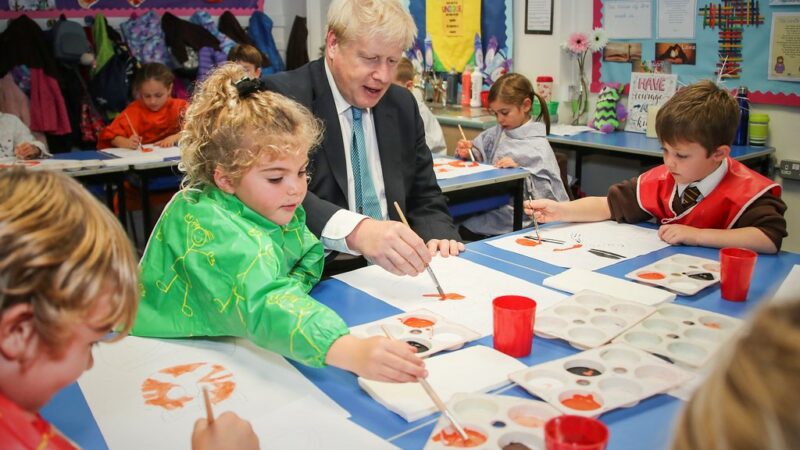It will be tricky, but Boris Johnson has to pull out all the stops to protect the public.

The recent modelling by Imperial College London shows that the government’s initial mitigation strategy would lead to a quarter of a million deaths in the UK.
Trying to suppress the disease is now the way forward, and if we are banning big sporting occasions along with (effectively) closing down pubs, theatres and restaurants then it makes no sense to keep the schools open.
Secondary schools can have thousands attending and even a big primary school can have 800 children, plus dozens of staff and a twice daily mass gathering of parents on the school run.
The big problem is what happens to the children as parents try to make alternative arrangements? It clearly has an impact on the economy as well as essential services.
If the grandparents are roped into doing childcare, then that opens them up to a deadly disease at a time when the government has told the elderly to self-isolate for their own protection. It is not an easy judgement call for the government to make. But is some kind of imaginative compromise possible?
What if the government partially closed schools so that only the children of key workers – such as those associated with the medical or caring professions – were allowed to attend?
There would have to be a call out for young teachers without children of their own to volunteer to run the schools, and for special measures to be taken in those schools to segment the children to minimise any spread of the disease. The government would need to set out the criteria for which categories of parents were eligible and local head teachers would need to get together (via video conferencing) to make the practical arrangements.
Some schools would have lots of eligible parents and others might have very few, so staff and children would need to be reorganised. Teachers are a cooperative bunch and I’m sure it could be done locally if there was a steer from on high.
There are undoubted problems with closing schools. We will need a plan to ensure adequate food for children on low incomes who rely on school meals. As noted, there is a big concern that grandparents will be roped into doing even more of the child-care.
Making tests widely available, as they are in South Korea, would help families plan safe arrangements with more certainty, but the key thing is providing some financial support for parents who are stuck between organising child-care and earning money. A basic income scheme (supported by the Greens for decades) should be introduced by the government as a temporary measure during this crisis.
Our current reality is schools slowly collapsing as staff go sick, children go sick or get withdrawn. Temporary closures announced overnight by text are leaving parents in the lurch. Children going sick, or fears about their classmates being sick, result in parents making ad-hoc arrangements with grandparents or work, in a daily, chaotic way.
The problem is that there is no government plan. Some headteachers have made in-house plans for school closures to last a couple of months and to organise resources that will help parents and carers with home schooling. Others still haven’t got that far as the government haven’t asked them to do it.
The editor of the Lancet has declared that: “We have wasted seven weeks. This crisis was entirely preventable.” As a result of their failed strategy, the government have been constantly behind.
Last week’s Cobra meeting was an example of this, when they said mass gathering should go ahead…but the FA and other major sporting bodies cancelled their events the following day. People have followed WHO guidelines, rather than government guidelines. It is time for the government to get ahead of the crisis and take a real lead.
The fragmented system of private schools, state schools and academy trusts will not be as easy to organise as it used to be, but the willingness to cooperate for the common good is very strong.
One third of infection transmission happens in schools and workplaces, and school and university closures are part of a strategy that is predicted to have the largest impact in stopping this virus, according to Imperial College London.
The government needs to send out a clear message about what it wants done and to guarantee that extra funds will be available to do it. The rest will be down to the professionals at a local level to sort out the detail.
Baroness Jenny Jones is a Green Party peer.
To reach hundreds of thousands of new readers we need to grow our donor base substantially.
That's why in 2024, we are seeking to generate 150 additional regular donors to support Left Foot Forward's work.
We still need another 117 people to donate to hit the target. You can help. Donate today.



